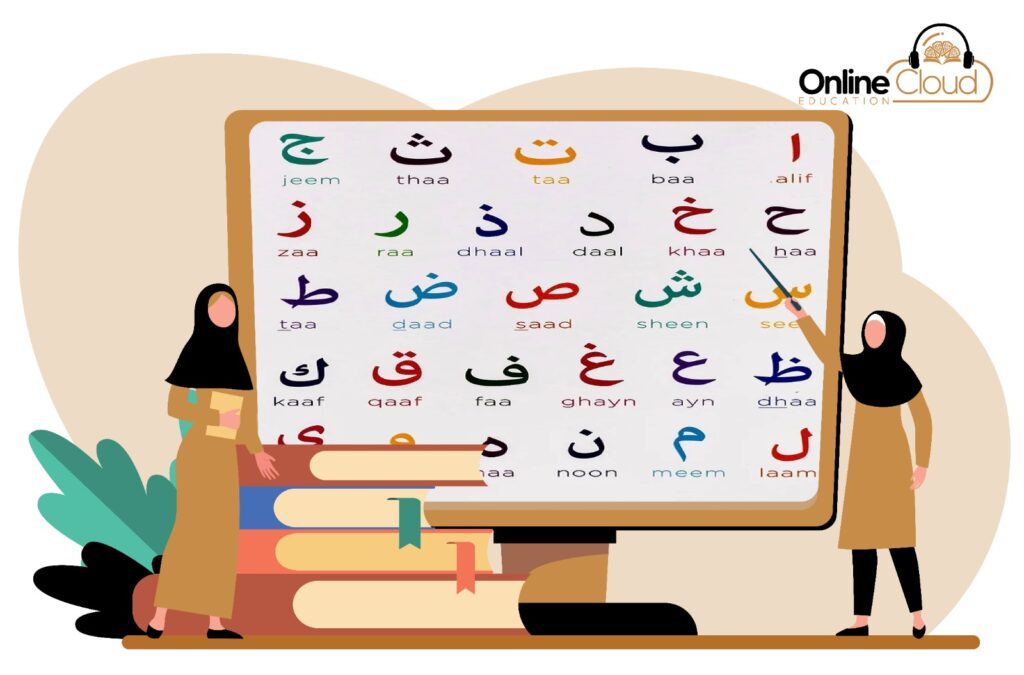Introduction
Definition of Prayer Lessons
Prayer lessons refer to structured sessions aimed at teaching individuals how to pray effectively, understand the significance of prayer, and incorporate it into their daily lives. Prayer lessons for kids and adults can be tailored for different age groups, backgrounds, and spiritual beliefs, providing a flexible framework for enhancing one’s spiritual practice.
Importance of Prayer Lessons
In today’s fast-paced world, finding moments of peace and reflection can be challenging. Prayer lessons offer a structured approach to reconnecting with one’s inner self, fostering a sense of calm, purpose, and direction. They help individuals develop a routine that supports mental and emotional well-being, bridging the gap between spirituality and everyday life.
Relevance to Modern Life
Despite technological advancements and modern conveniences, many people experience stress, anxiety, and a sense of disconnection. Prayer lessons provide tools to manage these challenges, offering a pathway to mindfulness and inner peace. By integrating prayer into daily routines, individuals can cultivate a balanced life that harmonizes the demands of modernity with spiritual fulfillment.
Benefits of Prayer Lessons
Spiritual Growth
Prayer lessons guide individuals on a journey of spiritual development, helping them deepen their connection with a higher power, regardless of their religious affiliation. Through regular practice, individuals can enhance their spiritual awareness, gain insights into their life’s purpose, and foster a sense of transcendence and inner peace.
Mental Health Benefits
Engaging in prayer has been shown to reduce stress, anxiety, and depression. Prayer lessons teach techniques that promote mindfulness, encourage positive thinking, and provide a sense of hope and resilience. These mental health benefits are crucial in navigating the complexities of modern life and maintaining psychological well-being.
Emotional Stability
Prayer lessons help individuals manage their emotions by providing a safe space to express feelings, seek guidance, and find solace. The act of praying can be cathartic, allowing individuals to process emotions constructively and develop a sense of emotional balance and stability.
Community Building
Group prayer sessions foster a sense of community and belonging. Participants share common spiritual goals, support each other’s growth, and create strong, lasting bonds. This communal aspect of prayer lessons helps combat feelings of isolation and strengthens social networks.
Types of Prayer Lessons
Individual Prayer Lessons
Individual prayer lessons are tailored to meet the specific needs and preferences of the person. These sessions provide one-on-one guidance, allowing for personalized instruction and a deeper exploration of spiritual practices.
Group Prayer Lessons
Group prayer lessons bring together individuals with shared spiritual interests. These sessions encourage collective prayer, discussion, and support, enhancing the sense of community and mutual growth.
Family Prayer Sessions
Family prayer sessions integrate prayer into the family routine, promoting spiritual development for all members. These sessions strengthen family bonds, create a shared spiritual foundation, and support moral and ethical growth.
Online Prayer Workshops
With the rise of digital platforms, online prayer workshops offer accessible and flexible options for learning about prayer. These virtual sessions connect individuals from diverse backgrounds, providing global perspectives and fostering a sense of worldwide spiritual community.
Components of Effective Prayer Lessons
Structure and Format
Effective prayer lessons have a clear structure and format, ensuring that sessions are organized and impactful. This includes setting clear objectives, providing step-by-step instructions, and incorporating various elements such as reading, meditation, and discussion.
Duration and Frequency
The duration and frequency of prayer lessons should be tailored to the needs of the participants. Short, regular sessions may be more effective than infrequent, longer ones, ensuring that prayer becomes a consistent and integral part of daily life.
Content and Themes
The content of prayer lessons should be varied and engaging, covering different themes such as gratitude, forgiveness, guidance, and compassion. This variety keeps the lessons relevant and helps participants explore different aspects of their spirituality.
Inclusivity and Accessibility
Prayer lessons should be inclusive and accessible to people of all backgrounds and abilities. This includes providing materials in multiple languages, accommodating different learning styles, and ensuring that sessions are accessible to individuals with disabilities.
Teaching Methods for Prayer Lessons
Interactive Teaching
Interactive teaching methods, such as group discussions and activities, engage participants and foster a deeper understanding of prayer. This approach encourages active participation and allows individuals to share their experiences and insights.
Storytelling
Storytelling is a powerful tool in prayer lessons, bringing spiritual teachings to life through relatable narratives. Stories from religious texts, personal anecdotes, and inspirational tales can make abstract concepts more tangible and memorable.
Prayer Lessons for Kids
Importance of Introducing Prayer Early
Introducing prayer to children at an early age can have lasting benefits. It helps them develop a spiritual foundation, instills moral values, and provides tools for coping with challenges. Early exposure to prayer also fosters a sense of wonder and gratitude.
Age-Appropriate Prayer Activities
Prayer activities for children should be age-appropriate, engaging, and fun. Simple prayers, and interactive stories can capture their interest and make learning about prayer enjoyable.
Integrating Prayer in Daily Routine
Incorporating prayer into a child’s daily routine, such as bedtime prayers or morning blessings, helps establish a consistent practice. These rituals provide a sense of security and comfort, creating a positive association with prayer.
Benefits for Child Development
Prayer lessons support various aspects of child development, including emotional regulation, empathy, and moral reasoning. They encourage positive behaviors, foster resilience, and help children navigate life’s challenges with a sense of faith and purpose.
Prayer Lessons for Adults
Adapting Prayer to Adult Life
Prayer lessons for adults need to consider the complexities of adult life, including work, family, and personal responsibilities. Lessons should be flexible and adaptable, allowing adults to integrate prayer into their busy schedules.
Addressing Adult Spiritual Needs
Adults often seek deeper meaning and purpose in their spiritual practices. Prayer lessons should address these needs by providing opportunities for introspection, personal growth, and connection with a higher power.
Overcoming Common Challenges
Common challenges for adults, such as time constraints and distractions, can hinder consistent prayer practice. Prayer lessons should offer practical solutions, such as short, focused sessions and techniques for maintaining concentration.
Benefits for Personal Growth
Prayer lessons support personal growth by encouraging self-reflection, fostering resilience, and promoting a positive outlook on life. They help adults navigate life’s complexities with grace and wisdom, enhancing overall well-being.
Cultural Perspectives on Prayer
Prayer in Different Religions
Prayer is a universal practice, present in various forms across different religions. Understanding these diverse practices enriches one’s own spiritual journey and fosters respect for other faiths.
Cultural Sensitivity in Prayer Lessons
Cultural sensitivity is crucial in prayer lessons, ensuring that practices are respectful and inclusive of all participants. This includes being aware of cultural norms, avoiding stereotypes, and celebrating diversity.
Learning from Diverse Practices
Learning from diverse prayer practices broadens one’s spiritual perspective and enhances personal growth. Incorporating elements from various traditions can enrich prayer lessons and offer new ways to connect spiritually.
Scientific Perspectives on Prayer
Research on Prayer and Well-being
Scientific research has explored the impact of prayer on well-being, revealing numerous benefits. Studies indicate that prayer can reduce stress, enhance mental health, and improve overall quality of life.
Psychological Benefits
Prayer has been linked to various psychological benefits, including increased resilience, improved emotional regulation, and enhanced coping mechanisms. These benefits support mental health and contribute to a positive outlook on life.
Studies on Group Prayer Effects
Research on group prayer suggests that collective spiritual practices can strengthen social bonds, create a sense of community, and enhance collective well-being. Group prayer has also been shown to amplify individual benefits.
Future Research Directions
Future research on prayer can explore its effects on different populations, the mechanisms behind its benefits, and its potential applications in mental health treatment. Continued exploration will deepen our understanding of prayer’s role in well-being.
Conclusion
Summary of Key Points
Prayer lessons offer numerous benefits, including spiritual growth, mental health improvements, emotional stability, and community building. They can be tailored to different needs and preferences, making them accessible to everyone.
Call to Action for Incorporating Prayer Lessons
Incorporating prayer lessons into your daily routine can transform your life. Start by finding resources, setting goals, and building a support network. Embrace the journey of spiritual growth and discover the profound impact of prayer.
Encouragement for Ongoing Practice
Consistency is key to reaping the benefits of prayer. Commit to regular practice, stay open to learning, and be patient with your progress. Prayer lessons are a lifelong journey that can enrich your life in countless ways.





